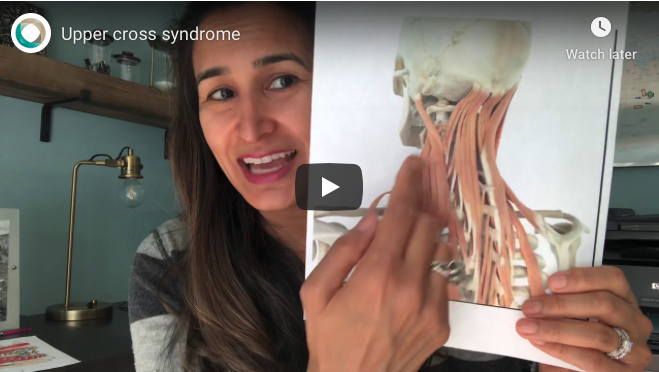
Upper Cross Syndrome (UCS) is an umbrella turn for a particular pattern of muscular imbalances in the upper body. It gets its name from the “X” pattern created from a combination of tight and weak muscles. We are especially vulnerable to poor posture and Upper Cross Syndrome during the COVID-19 pandemic because we’re at home more often and tend to look at screens more frequently throughout the day. Symptoms of Upper Cross Syndrome include head and neck pain, headaches, anatomical changes in the elbows, forearms, and hands, and even tingling sensations throughout the arm. If you are experiencing any of these above symptoms, you could be suffering from the muscle imbalances of UCS.
Prefer to watch the video? Click below
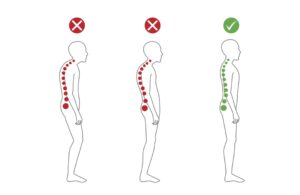
Proper posture is key to preventing and alleviating symptoms from Upper Cross Syndrome. Lots of factors can lead to worsening postural changes—more commonly known as “forward head posture”—including trauma, car accidents, surgeries, habits, and even professions and occupations.
In forward head posture, the head falls forward and causes a pattern of tight and weak muscles. As your posture worsens and the head moves further forward, the force required to keep your head upright increases and, in turn, increases the strain and imbalances in the muscles of your upper body. The muscles at the front of the chest and certain muscles at the back of the head get tight. Other muscle groups including the upper back, the back of the neck, and the front of the neck experience more laxity and can develop weakness. This pattern of weak and tight muscles cause the symptoms of UCS.
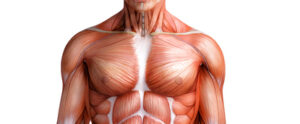
The human body is a very complex and interconnected structure. The chest muscles connect to the muscles of the shoulder and the shoulder blade, and the shoulder complex connects to the head, neck, and spine. Therefore, tight chest muscles that develop from postural changes and imbalances can cause problems like herniated discs and accelerate degenerative changes to the spine due to the increased strain put on the surrounding muscles and joints.
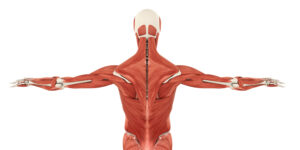
The deep neck muscles that support the head and neck also tend to weaken in UCS and put additional strain on the spine, creating arthritic and degenerative changes. Some muscles at the back of the head extend down the spine to the mid-spine and are connected to the lower back muscles through fascia. Consequently, muscular imbalances in the head and neck can affect the low back and hips.
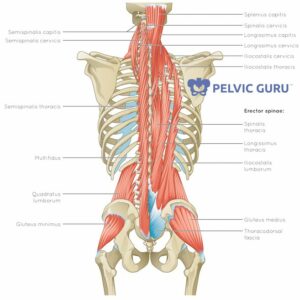
Overall muscle tightness from UCS can also cause muscles to become ischemic, that is, not receiving adequate blood flow, and cause both localized pain and referred pain to other areas of the body.
You can begin to address the symptoms of UCS with stretches to target the chest muscles, the muscles at the side of the neck, and the muscles at the back of the head. You can also make postural corrections and build a more ergonomic workspace at home. However, oftentimes dealing with UCS is not as simple as adding a few stretches into your daily routine. To be fully recovered and free from the symptoms of Upper Cross Syndrome, there are many muscles that need to be addressed. For you, there may be a very small, specific muscle that is your “problem” muscle that can’t be stretch with a simple YouTube tutorial. This is where treatment from a skilled physical therapist comes in—they can help you pinpoint your issues and improve muscular imbalances with a targeted treatment plan.
If you live in the Greater Philadelphia area and are suffering from Upper Cross Syndrome, please visit Rebalance Physical Therapy in person! We can treat your muscle imbalances to improve your symptoms and improve your quality of life. If you are unable to travel, we are also doing phone consults and Telehealth visits.
We currently have online programming for Male and Female Pelvic Pain and C-Section Solutions to help our patients take their recovery and healing at their own pace. If you would be interested in a similar online program for muscular imbalances, please let us know!
In-Person and Online Consultations


